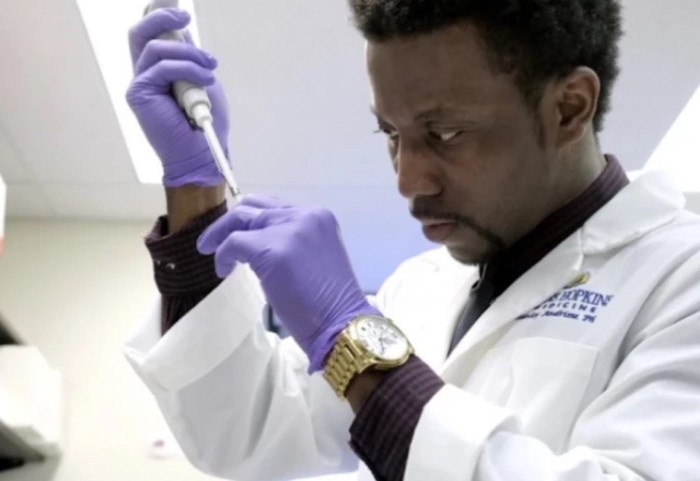Black Lives Matter in Science and Medicine

Dr. Stanley Andrisse led an engaging and thought-provoking conversation focused on the effects of racism on the careers of Black academics.
Imperial As One, in conjunction with the Faculty of Medicine, were excited to welcome Dr. Stanley Andrisse, an endocrinologist and assistant professor at Howard University College of Medicine, back to Imperial for a follow-up event to the ‘Black Lives Matter in Science and Medicine’ talk he gave last year.
Dr. Andrisse led a virtual audience of over 125 in an important conversation on how racism impacts the careers of Black academics and the tangible and meaningful actions Imperial can make to help combat this issue. Smaller break-out sessions delved into some of the key points raised in the main talk, and Stan led a session with a number of senior staff to help highlight the specific implications for Imperial.
Catch up on the event below:
Dr. Andrisse has spent the last two months as a visiting researcher at the Department of Metabolism, Digestion and Reproduction, he also holds a visiting professorship at Georgetown University Medical Center and held an adjunct professorship at Johns Hopkins Medicine after completing his postdoctoral training.
His ‘From prison cell to Ph.D’ program gives incarcerated men and women the the assistance needed to pursue a Bachelor’s degree while still in prison and during reentry. It is one of the only programs of its kind in the US assisting in and after prison to help obtain full degrees – furthering one’s education is critical to successful reentry into society.
Stan has a personal interest in this. Growing up in Ferguson-Florissant, Missouri, he fell into the pattern of poor decision making from a very young age. By his early 20’s, he found himself sitting in front of a judge facing life for drug trafficking charges. The judge sentenced him to 10 years in a maximum-security prison. Stan turned this to good. He did a lot of reading, writing, and soul searching in prison. After many letters to judges and correctional officials, he was accepted into a drug rehabilitation program while still in prison.
Fast forward a few years and determined to be a different person to what so many people expected, he completed a master’s in business administration and a PhD focused on diabetes and physiology in four years, and finished at the top of his class. He is now a tenured academic with an international reputation in his field.
Dr. Stanley Andrisse is releasing a book on his personal journey called: Prison Cells to PhD – It is Never Too Late to Do Good.
Article text (excluding photos or graphics) © Imperial College London.
Photos and graphics subject to third party copyright used with permission or © Imperial College London.
Reporter
Benjie Coleman
Department of Surgery & Cancer